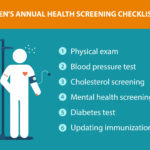Want to make a positive change for your health? Eating a plant-based diet is one of the best ways to improve your overall health and well-being. From reducing the risk of chronic diseases to providing essential nutrients, plant-based diets have a myriad of health benefits. In this article, we’ll explore the numerous benefits of eating a plant-based diet, including improved heart health, increased energy, and a reduced risk of obesity.
Introduction to Plant-Based Diets

Introduction to Plant-Based Diets A plant-based diet is one that focuses on eating mostly plant-based foods, like fruits, vegetables, legumes, nuts, and seeds. Plant-based diets have become increasingly popular over the past few years, as more and more people look to improve their health through dietary changes. Plant-based diets have been linked to a wide range of health benefits, including lower body weight, decreased risk of chronic diseases like heart disease and diabetes, improved energy levels, and improved overall wellbeing. In addition to the health benefits, plant-based diets can also be environmentally friendly and economical. Eating a plant-based diet can help reduce your carbon footprint and save money on food costs. The key to making a successful transition to a plant-based diet is to plan ahead. Meal planning is one of the best ways to ensure that you’re eating a balanced and nutrient-rich diet. Start by familiarizing yourself with plant-based foods, and then create a meal plan that includes a variety of these foods. This will help to ensure that you’re getting all the essential nutrients your body needs. Additionally, it’s important to focus on whole, unprocessed foods, as these
Nutritional Benefits of Eating a Plant-Based Diet

The nutritional benefits of a plant-based diet are extensive and numerous. Eating a predominantly plant-based diet is associated with a lower risk of diabetes, heart disease, stroke, and certain types of cancer. Plant-based diets are also naturally high in fiber, vitamins, minerals, and antioxidants, which are essential for maintaining a healthy body. Eating a plant-based diet can help to reduce inflammation and oxidative stress, two of the main causes of chronic disease. Additionally, plant-based diets are naturally low in saturated fat and cholesterol, both of which are linked to heart disease. Eating a balanced plant-based diet can also help to reduce blood pressure and improve cholesterol levels, leading to improved cardiovascular health. Finally, a plant-based diet is naturally high in phytochemicals, which can help to protect against infection, enhance immune function, and reduce the risk of certain types of cancer. Eating a plant-based diet can provide numerous nutritional benefits, including improved cardiovascular health, a reduced risk of diabetes and certain types of cancer, and enhanced immune function.
Plant-Based Diets and Weight Loss

One of the most significant benefits of a plant-based diet is its ability to help with weight loss. A plant-based diet is based on whole, unprocessed plant foods including fruits, vegetables, nuts and seeds, legumes, and whole grains. These foods are high in fiber, low in calories, and packed with essential vitamins, minerals, and antioxidants. Eating a diet that is rich in whole foods and low in processed items can help lower your calorie intake and promote weight loss. Additionally, plant-based diets have been shown to reduce inflammation, which may also play a role in weight loss. Eating more fruits, vegetables, and other plant-based foods is a great way to get the nutrients you need while reducing your calorie intake and achieving your weight loss goals.
Plant-Based Diets and Heart Health

A plant-based diet offers many benefits for heart health. Studies have shown that a plant-based diet helps to reduce cholesterol levels, lower blood pressure, and reduce the risk of heart disease. Eating a diet that is rich in fruits, vegetables, whole grains, legumes, and nuts can help to reduce the risk of coronary artery disease, stroke, and other cardiovascular diseases. The dietary fiber found in plant-based foods is beneficial for maintaining healthy cholesterol levels, as it helps to reduce the absorption of cholesterol from the digestive tract. Additionally, plant-based diets are low in saturated fat and trans fat, which can increase the risk of heart disease. Eating a plant-based diet can also help to reduce inflammation, which is a major risk factor for heart disease. Eating a variety of plant-based foods can provide essential vitamins, minerals, and antioxidants which are beneficial for overall health. Additionally, plant-based diets are typically low in calories, making them a great choice for those looking to maintain or lose weight. Eating a plant-based diet is a great way to keep your heart healthy and reduce your risk of heart disease.
Tips for Transitioning to a Plant-Based Diet

Making the transition to a plant-based diet can be intimidating, but it doesn’t have to be. Start small by making one meal a day plant-based. Each week, try to add more plant-based meals to your diet until you are eating a majority of plant-based foods. Meal planning can make the transition easier. Decide which days you’ll have a plant-based breakfast, lunch, and dinner. Then plan out your meals for the week. Make sure to include plenty of fruits and vegetables to meet your daily nutrient needs. When you are grocery shopping, look for plant-based proteins and snacks that you enjoy. Don’t forget to stock up on pantry staples such as grains, beans, and legumes. If you’re short on time, opt for quick and easy meals such as salads, stir-fries, and burrito bowls. Additionally, look for plant-based meal delivery services that can take the hassle out of meal planning and grocery shopping. With just a few simple changes, you can easily transition to a plant-based lifestyle and reap the many health benefits.




